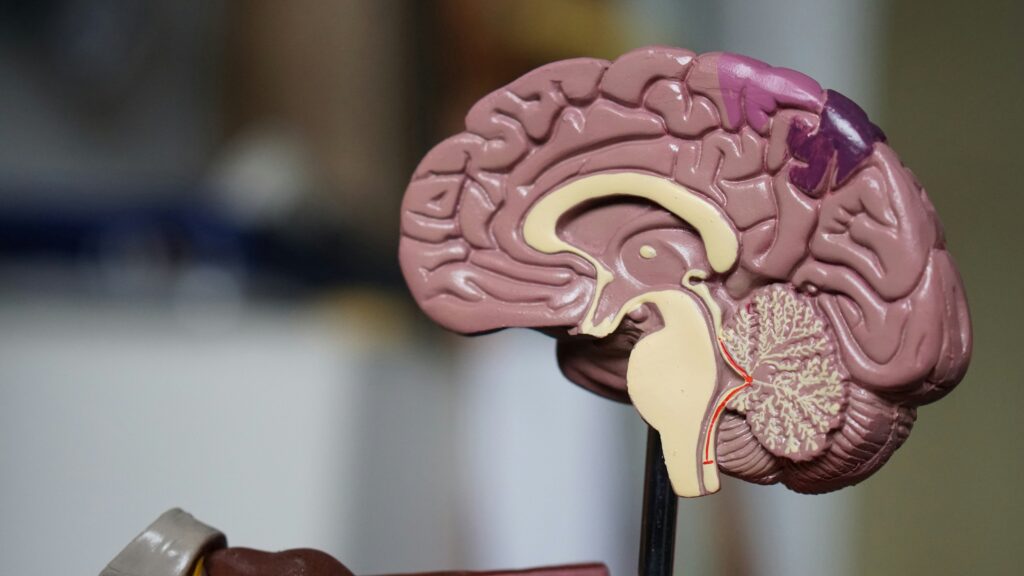Ready to get started? book your free consultation today
How to get unstuck: the case for EMDR
May 30, 2024
If you have been in the therapy world recently, you have likely heard of EMDR. It is a highly sought after therapeutic intervention that I find myself using with nearly every individual therapy client. I find it to be highly effective and create change faster than traditional talk therapy. So what exactly is EMDR therapy and how does it work? I want to first start with explaining my view on trauma, the Adaptive Information Processing Model (AIP) and how this helps inform EMDR’s effectiveness.
What is trauma?
When something really overwhelms us and our body can’t bounce back to its usual balance, we call it trauma.

There are two main categories of trauma, often referred to as “Big T” and “little t” traumas, which is based on the nature of the incident and how it impacts the individual.
“Big T” trauma are events that the general public would consider traumatic and are often associated with post traumatic stress disorder (PTSD), such as abuse, neglect, violence, life-threatening experiences, sudden loss of a loved one, etc.

“Little t” traumas are events that are experienced as traumatic on a personal level, but typically don’t involve violence or life threatening incidents – and – they rarely result in an individual meeting the full criteria for PTSD, although they do have symptoms. Some examples of “little t” traumas include bullying, being fired, relationship breakups, being yelled at, a dog bite, chronic difficulties in learning/school, etc. “Little t” traumas are often associated with a relational trauma, unwanted changes in one’s circumstances or a violation of one’s emotional safety.

What is the AIP model (Adaptive Information Processing)?
AIP (Adaptive Information Processing) is founded on the concept that we are all inherently wired for healing. Our brains and bodies are remarkable organisms that naturally want to heal. When everything is functioning smoothly, our brain’s processing system acts as a superhero, aiding us in coping with challenges and guiding us back to a state of safety and equilibrium. However, when trauma occurs, it acts as a roadblock disrupting this system, as our brain prioritizes felt safety above all else, even health. Despite our efforts to process the experience and move forward, we sometimes find ourselves stuck.
This is where EMDR comes into play.

What is EMDR?
When we experience trauma or any stressful life event, our brains can become entrenched in a negative loop, replaying the same distressing beliefs or content repeatedly. EMDR therapy intervenes to break this cycle.

It accomplishes this through the use of bilateral stimulation, a technique designed to facilitate communication between both hemispheres of the brain. Bilateral stimulation can take various forms, such as tapping, eye movements, or audio cues. This stimulation mimics REM sleep (Rapid Eye Movement), the stage during which we dream, process, and store memories from the day. So, while you engage in bilateral stimulation, your therapist simultaneously helps you connect with the stressful life event. Once you attain this dual awareness of the stimulation and the event, your sole task is to observe what your brain and body reveal next. By acting as witnesses to your brain and body, it’s as though you’re affording your brain the opportunity to heal itself by processing everything properly this time around.

And the fascinating aspect? As you engage in this process, those memories gradually lose their level of distress and intensity. It’s as though your brain is finally able to make sense of it’s experience and let them go, rather than allowing them to perpetuate that negative loop in your system.
In summary, EMDR therapy aids us in addressing stressful life events by offering our brains assistance in processing and storing those experiences in a healthier manner.
If you find yourself feeling trapped, EMDR therapy might be the right choice for you! If you’re in Colorado, feel free to schedule a complimentary 15-minute consultation with me, and I would be delighted to address any questions you may have.
More Stories You'll Like
Get Started Today
Research shows that the client-clinician relationship is THE most important predictor of positive outcomes in counseling. Let's get to know each other & see if we might be a good fit!
Andrea Eaton Counseling offers counseling services for individuals, couples and families in the heart of Denver, Colorado.
If you are in crisis, please call the local mental health hotline at 1-844-493-8255, text TALK to 38255, dial 9-1-1, or visit the nearest emergency room.
303-219-0489 • hello@andreaeatoncounseling.com
789 Sherman Street #650, Denver, CO 80203
COPYRIGHT 2024 ANDREA EATON COUNSELING. SITE CREDIT.

